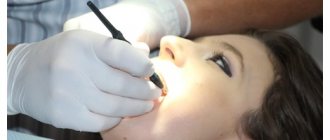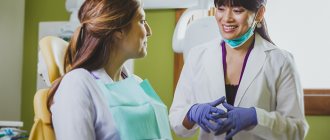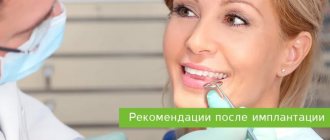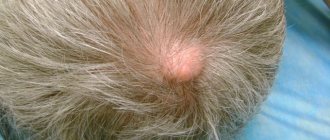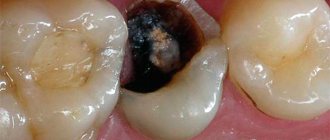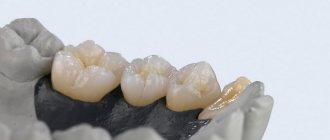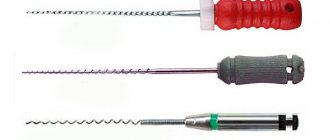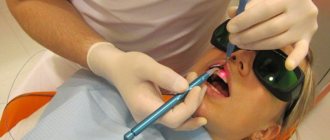Second
Everyone agrees that this is the most appropriate period for dental intervention. At this time, the risk of gestation interruption is significantly reduced, and the placental barrier is formed. It very well prevents various substances from reaching the fetus, including painkillers. In addition, at this stage the belly is not yet very rounded - it will not interfere with the girl. Not only removal, but also any treatment is recommended to be carried out right now. The only serious limitation is that we do not recommend enamel bleaching, since the dye can get into the blood.
Is it possible to remove a tooth during the third trimester of pregnancy?
On the one hand, anesthesia is used completely without fear, since the placenta is well protected from the penetration of medications, and all organs and systems are almost completely formed and their development can no longer be disrupted. But, unfortunately, the likelihood of premature birth increases, because under stress (fear or pain) the uterus can contract.
If you need to sanitize the oral cavity after 34-35 weeks, it is recommended to wait until after delivery.
Is it possible to remove teeth in position?
Since many medications are prohibited during pregnancy, expectant mothers refuse to have their teeth treated or removed and endure pain until childbirth. But in many cases such a measure is not justified. It is possible and necessary to carry out treatment or extirpation, the main thing is to do it correctly.
Anesthesia is done using local drugs that have minimal side effects and do not have a negative effect on the fetus. However, the operation is performed only if there is an urgent need.
Indications for extraction:
- pulpitis, periodontitis, in which neighboring tissues become infected;
- deep carious lesion affecting the root;
- cyst or malignant neoplasms;
- growth of a figure eight, complicated by inflammation or if it presses on an adjacent molar;
- tooth root fracture;
- rapid development of periodontal disease, which is not amenable to therapeutic treatment.
If a pregnant woman experiences pain when chewing, she will not be able to eat properly, which leads to a deficiency of nutrients. This situation negatively affects her body, the formation and growth of the fetus.
The doctor considers each case individually. If possible, reschedule the operation for a more convenient time.
Implantation and prosthetics during pregnancy
Prosthetics in themselves are not prohibited during pregnancy. You can install removable and fixed dentures, and even crowns. But implantation will have to wait until the baby is born. Dental implantation during pregnancy requires a huge expenditure of vitality and body resources, and most importantly, the use of anti-inflammatory drugs, strong painkillers, and sometimes antibiotics.
Inserting an implant into bone tissue requires surgical cutting of the gum and drilling into the bone. And then the body must form new bone tissue around the implant. And all this during the period when the skeleton of the unborn child is intensively formed, when every milligram of calcium counts - so much so that the mother’s body is ready to weaken its own bone tissue and the structure of the enamel and dentin of the teeth so that the baby’s body does not experience a lack of calcium.
Therefore, during such a period, it is extremely unwise to further weaken the mother’s body and endanger the unborn child through the most complex surgical implantation operation. It is better to wait a few months and have implantation done after birth, without endangering the baby.
How does the timing of tooth extraction affect pregnancy?
In case of severe inflammation and pain, it is not always possible to postpone surgical intervention. If there are indications for extraction of a dental unit, then the possibility of carrying out the procedure must be agreed with the therapist and gynecologist. In this case, the period of bearing the child is important. Each trimester has certain restrictions and possible complications for the mother and fetus.
Possibility of extirpation according to timing:
- First trimester. The placenta is being formed, the organs and systems of the child are being formed, so any medical manipulations are performed with extreme caution and only according to strict indications. During this period, most drugs are contraindicated, and surgery without them is impossible. Medicines, x-rays, and computed tomography have a negative effect on the fetus, causing various abnormalities. Some medications cause miscarriage. Even treatment of deep caries can be postponed to a later date. However, there are situations that do not allow you to avoid removing a diseased tooth. If there is severe pain and inflammation, this leads to hypertonicity of the uterus, nervous breakdowns, spread of infection to other organs, and infection of the fetus. In this case, the dentist can perform the operation despite contraindications.
- Second trimester. After 3 months, the fetus is formed and the placenta is well protected. During this period, many types of treatment are allowed, including extraction, except for complex cases with a figure eight. Mother's stress and medications do not have such a strong effect on the child and pregnancy. Local anesthetics can be used safely. Before a CT scan or X-ray, a woman puts on a special protective apron.
- Third trimester. Surgical intervention is highly undesirable. Although the fetus has become physically stronger, by this time the placenta is thinning and protects it less well. In addition, the period is dangerous for premature birth. Stress and pain can cause uterine contractions. Starting from the thirty-fourth week, almost any treatment is stopped.
At any time, extraction is carried out for purulent inflammation, which cannot be cured by therapeutic methods. In addition, if a pregnant woman suffers severe pain and is constantly under stress, this can have a bad effect on the child’s psyche.
Precautionary measures
If possible, a woman should not have x-rays throughout her pregnancy. But if it is impossible to do without this type of diagnosis to clarify the situation and make a correct diagnosis, preference should be given to radiovisiography. During it, a radiovisiograph is used - modern electronic equipment, which makes it possible to see a clear x-ray image of the area under study on a computer monitor in real time. The radiation coming from this device is much lower than that of an X-ray machine. To minimize radiation exposure, the patient's chest, abdomen and pelvis are protected with special aprons that block the passage of X-rays.
If you are pregnant and suffering from toothache, and don’t know whether it’s worth removing a tooth now or whether it’s better to postpone the procedure until the cherished “X” day, make an appointment at the Line of Smile dental clinic. Our doctors have extensive experience and will tell you how best to proceed in your situation.
Wisdom tooth removal during pregnancy: risks and complications
Surgery on the third molar is the most difficult. The procedure itself has a high probability of developing complications, especially in the lower jaw. Extracting the root of a lower extreme molar requires cutting into the gum and removing part of the bone, which is a more traumatic surgical procedure than a simple procedure.
After extirpation of the figure eight, body temperature may rise, severe pain in the jaws, head, neck, throat, swelling of the face and other negative phenomena may occur. The recovery period is long and painful. For these reasons, surgery is performed only in extreme cases: if there is a risk of infection spreading, or if there is severe, ongoing pain.
If it is possible to wait until childbirth or at least until the 2nd trimester, then the extraction of the figure eight is postponed.
Removal of tooth nerve during pregnancy
Depulpation is done for deep caries, when pathogenic microflora has penetrated the root canal and affected the pulp. Treatment requires local anesthesia, so the procedure is not recommended in the 1st trimester.
In order to leave the dental unit alive, they try to cure the nerve. If most of the pulp is affected, it is completely removed. If the nerve is treated with a therapeutic method, then the pregnant woman should regularly visit the dentist, as a relapse of the disease is possible.
Modern clinics do not use arsenic, which is absolutely contraindicated for pregnant women. For treatment, safe drugs with natural ingredients are used.
Tooth extraction during pregnancy: anesthesia and medications
Anesthesia is required for surgery. General anesthesia is not acceptable. Anesthesia with lidocaine and similar anesthetics with adrenaline is also not carried out for pregnant women. The drugs can cause cramps, muscle weakness, severe allergic reactions, and lower blood pressure.
Modern painkillers contain a minimum of adrenaline and do not contain vasoconstrictor components that cause uterine hypertonicity. When applied topically, they are practically not absorbed into the blood, therefore they are safe for the fetus.
Among the acceptable medications, the safest ones can be identified:
- Ultracaine;
- Alfacaine;
- Artifrin;
- Primacaine;
- Ubistezin.
During forced surgery, you do not have to endure pain, as happened several decades ago. Today, extraction is done absolutely painlessly.
If gum tissue is cut during surgery, antibiotic therapy is necessary. Pregnant women are usually prescribed Amoxiclav, which has an antibacterial and bactericidal effect. To reduce fever, a minimum dosage of Paracetamol may be prescribed.
Chlorhexidine, Miramistin, Romazulan - safe antiseptics - are used for mouth rinsing.
Safe anesthesia options for pregnant women
Dental treatment under anesthesia during pregnancy is clearly prohibited - only local painkillers can be used. However, local anesthesia for dental treatment during pregnancy is very important: severe pain during treatment can cause a surge of adrenaline, which can dangerously affect the unborn baby and even cause premature birth.
Novocaine and lidocaine should be excluded from local anesthetics - they can cause muscle weakness, cramps, pressure changes, dizziness and vomiting. Ubistezin, ultracaine, artifrin, alfacaine are considered safer painkillers for dental treatment during pregnancy, because they do not have a vasoconstrictor effect and almost do not penetrate the placenta.
What to do after tooth extraction during pregnancy
Even if the procedure was successful, without pain, complications may develop during the recovery period. It is very important that after extirpation a blood clot is formed and firmly attached. It protects the resulting cavity with exposed bone and nerve endings from infection by bacteria and food.
The natural “plug” may come off in the following cases:
- sticking to a cotton swab (placed after surgery) if held for too long;
- licking the hole with the tongue;
- using a drinking straw;
- newly opened bleeding.
If the blood clot falls out, a new surgical intervention will be required. Otherwise, an inflammatory process will occur, which can lead to complications.
It is not recommended to get tired on the day of surgery. After the procedure, you need to go home and rest. You can eat after 3 - 4 hours. Food should be at a comfortable temperature, soft or liquid. Spicy, rough foods that injure soft tissues should be excluded. You should not smoke, as nicotine constricts blood vessels and interferes with healing.
You can rinse your mouth on the second day. As an antiseptic, pharmaceutical preparations, decoctions of medicinal plants, and an aqueous solution with salt and soda are used. Medicines will prevent the development of infection and speed up wound healing. Rinsing should be gentle and not intense, otherwise the blood clot will come off.
When brushing teeth, the surgical site is bypassed. You should use a toothbrush with soft bristles.
Until the wound heals, you should not overheat the body or exert physical stress. Otherwise, bleeding may resume.
How to prevent tooth extraction during pregnancy
A full examination and treatment by a dentist should be done at the planning stage of conception. But even in this case, there is no guarantee that dental problems will not appear during pregnancy. After registration, a pregnant woman should regularly visit the dentist. If diseases are detected early, they can be treated safely and painlessly.
It is necessary to remember and carefully follow all the doctor’s recommendations for the prevention of diseases of the dental system. After conception, the composition of saliva and hormonal levels change, causing a deficiency of macro- and microelements and vitamins. Gingivitis is often diagnosed, which develops against the background of loose gums and reduced immunity. At this time, it is very important to eat right and maintain good oral hygiene.
In the second trimester, identified problems can be safely eliminated. After professional hygiene at the dentist, dental protection improves significantly, so do not neglect this procedure.
What can an expectant mother do on her own?
Pregnant women should not self-medicate. But, if the eruption of wisdom teeth proceeds according to the classic scenario and does not cause negative symptoms, the woman can calm down. In this case, she does not need to run to the dentist.
To eliminate the occurrence of unpleasant sensations associated with putting pressure on the inflamed gum, you must try to chew food on the “healthy side”. After eating, be sure to rinse your mouth with warm water or a decoction of herbs. It is also permissible to purchase a special pharmacy rinse for this purpose.
If the pain intensifies, medical consultation is indicated. If for some reason it is impossible to get it right now, the expectant mother can take a no-shpa tablet to reduce the pain. But this should be a one-time “action”.
